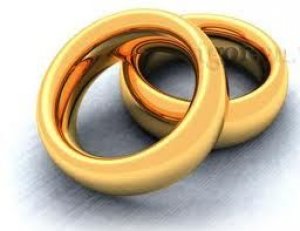
All iLive content is medically reviewed or fact checked to ensure as much factual accuracy as possible.
We have strict sourcing guidelines and only link to reputable media sites, academic research institutions and, whenever possible, medically peer reviewed studies. Note that the numbers in parentheses ([1], [2], etc.) are clickable links to these studies.
If you feel that any of our content is inaccurate, out-of-date, or otherwise questionable, please select it and press Ctrl + Enter.
Psychologists have determined which marriages are happy marriages
Last reviewed: 01.07.2025
 ">
">Psychologists have developed a classification that can be used to analyze your own marriage.
To determine what type your marriage belongs to, you need to understand which letter corresponds to its characteristic.
Read also:
- Scientists have proven the benefits of marriage
- Early marriages and their dangers
- Family Problems That Strengthen Marriage
- Confidence in your partner is the key to a successful marriage
These letters, taken from the Latin alphabet, are very symbolic: their lower part means the beginning of a relationship in marriage, and the upper part indicates its prospects. So…
Type I – one whole. Such relationships are called “ideal marriage”. Once united, spouses do not separate for life. Type I marriages are the most durable and harmonious: husband and wife not only go hand in hand throughout their lives, but also maintain mutual tender feelings.
Type O – monotony. In a type O marriage, the relationship moves in a circle, and after a while the spouses begin to feel burdened by the monotony of their lives. True, the urge to make changes in their lives remains unfulfilled. Traditions, habits and laziness take over. Feelings in such a marriage also become dull, so that sparks of passion turn into a weak flicker.
Type H – parallel. Unlike a marriage of type A, in a parallel marriage the spouses do not become closer even despite the connecting link (crossbar). For example, in such a marriage there are spouses who did not become closer with the birth of a child, but maintain a relationship for the sake of the child. Each of them lives by their own interests, observing “diplomatic relations”.
Type S is a dead end. A marriage of this type can last a very long time. But if the relationship is unpromising, then ultimately it still freezes at one point and does not develop any more. Both partners remain disappointed with the marriage, although they never get divorced. They often quarrel and find fault with each other over trifles.
 [ 1 ]
[ 1 ]
